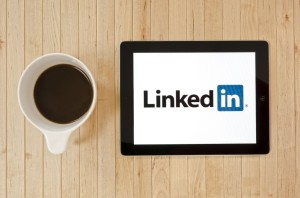#JobSearch : Laid Off? 10 Lessons I Learned From My Job Search. Great Checklist!
I was laid off from my job a year ago with no warning due to a company-wide reduction-in-force. I had only been at that startup company for six months, and so had just recently gone through the job search experience. With all the layoffs happening right now in the era of COVID-19, I wanted to share some of the lessons I learned at the time, along with helpful tips for searching for a new job.
Being suddenly laid off certainly came as a shock, and it affected me emotionally. I recommend that anyone experiencing a layoff give themselves some time to clear their head and find ways to de-stress. Try finding a hobby or something enjoyable you can split your job hunting time with. Job searching and interviewing all day, every day, really wears on you, so making time for yourself is important. When I was laid off, I decided to learn how to sew, and it was a great way to balance the draining effects of job hunting with a new pastime I was excited about and helped me to feel calm.
While I recognize that the current situation we are faced with has its own special set of circumstances and challenges that make job hunting right now especially hard, I hope that some of what I learned may be helpful to others.
1. Update your LinkedIn profile
The first thing you should do is review, update, and enhance your LinkedIn profile:
- Add bullet points that describe your roles and responsibilities at each of your previous companies.
- Ensure your job titles and dates are correct.
- Make sure your tagline is updated.
- Update the summary section to include what you’ve done. If you’re openly looking (not currently employed), add what you’re looking for in your next opportunity.
- Turn on the “Let recruiters know you’re open” feature by visiting “Jobs > Career Interests” and add a note to recruiters about what you’re looking for.
Like this Article? Share It! You now can easily enjoy/follow/share Today our Award-Winning Articles/Blogs with Now Over 2.5 Million Growing Participates Worldwide in our various Social Media formats below:
LinkedIn: https://www.linkedin.com/in/chris-g-laughter-b46389198/
Facebook: http://www.facebook.com/pages/First-Sun-Consulting-LLC-Outplacement-Services/213542315355343?sk=wall
Twitter: Follow us @ firstsunllc
Best Daily Choice: Follow the Best of FSC Career Articles/Blogs @
https://twitter.com/search?q=bestoffscblog&src=typeahead_click
Question: Want the ‘the best/current articles/blogs on the web’ on Job Search, Resume, Advancing/Changing your Career, or simply Managing People?
Answer: Simply go to our FSC Career Blog below & Type(#Jobsearch, #Resume, or #Networking) in Blog Search: https://www.firstsun.com/fsc-career-blog/
What Skill Sets Do You have to be ‘Sharpened’ ?
Article continued …
2. Build your network
While it’s a good practice to focus on building your network throughout your career, you can use LinkedIn to expand your network. LinkedIn is most useful when you can leverage your network, and that means everyone you are connected to, since you are now a 2nd-degree connection to everyone they are connected to as well.
Search through and invite as many LinkedIn connections as possible from past coworkers. Also add personal contacts. This can even mean people you went to school with and haven’t talked to in many years as long as they’re someone you might be comfortable reaching out to and asking for an introduction. Anyone you know that works in your industry/field or works in your city can be helpful. Especially in these tough times, it is safe to assume most connections are willing to help out, as everyone understands the struggle of being laid off during this pandemic.
3. Purchase and use LinkedIn Premium
I know it sounds irritating to spend $60 a month on LinkedIn; however, it was the single most useful tool I used to help me find a job. Ideally, you’ll only need it for a few months and then you’ll get a job. Think of it as an investment in yourself.
The most effective way to get interviews at companies is by receiving an internal referral from a current employee. Here’s my strategy for that: Start by using Google to look up job postings; for example: “events manager jobs in San Francisco.” Google will pull results from all the job boards on the internet. Once you have found a job you are interested in, do the following using LinkedIn Premium:
- Look up the company on LinkedIn, click on “See all XX number of employees that work here,” and filter results by 1st- and 2nd-degree connections. You need LinkedIn Premium to do this, because without it, only the first few people at the company will be shown and you’ll get a message saying, “You need to upgrade to premium to view the rest.”
- Once you have seen a job posting on an external site, visit the “careers” page of that company and make sure you see the job posting there, too. That’s where you’ll find the most accurate information. Unfortunately, many companies leave old job postings up even after they have been filled. When searching, I often filter by jobs posted in the last week to get the most current listings.
- If you have any 1st-degree connections on LinkedIn, contact them and ask them to refer you to the job. Always include a link to the job description. It is best to wait until they reply before you send a resume, unless it’s someone you know well and are certain their answer will be yes. (Sample message: “Jim, I’m interested in applying to the [fusion_builder_container hundred_percent=”yes” overflow=”visible”][fusion_builder_row][fusion_builder_column type=”1_1″ background_position=”left top” background_color=”” border_size=”” border_color=”” border_style=”solid” spacing=”yes” background_image=”” background_repeat=”no-repeat” padding=”” margin_top=”0px” margin_bottom=”0px” class=”” id=”” animation_type=”” animation_speed=”0.3″ animation_direction=”left” hide_on_mobile=”no” center_content=”no” min_height=”none”][insert job title and link to job posting] role I saw listed at [insert company name]. Would you be willing to refer me for this position? I can send along my resume. Thanks!”)
- If you don’t have any 1st-degree connections, but you have some 2nd-degree connections, that’s where the networking begins. Depending on how well you know the person you’re connected to, you can send a message to the connection asking for an introduction. (Sample message: “Hey Tina, how well do you know [2nd-degree connection name] over at [company name]? I see a job posting there I am interested in applying to, and I’m wondering if you know her/him well enough that you’d be willing to make an introduction or pass along my resume.”)
- Then you wait for a reply. Don’t wait more than 24 hours before moving on to the next 2nd-degree connection if you have more than one. If it’s a job you really want, send 2-3 messages at once and go with whoever replies first.
- If you don’t know your connection very well and don’t feel like reaching out for an introduction, this is where “InMail” comes in. InMail is a LinkedIn Premium feature that allows you to send a message to someone you are not already connected to. The way InMail works is that you are charged one InMail to message someone you aren’t connected to, but if they respond at all (regardless of what they say) you get that credit back. LinkedIn Premium comes with 30 InMails a month.
- Here’s a sample InMail message to someone I was 2nd-degree connected to: “Hi, Molly. I came across your profile as I was looking at a job posting for [job title and link] at [company name]. I noticed we have many connections to people I attended school with, so I thought I’d reach out and see if you’d be willing to chat about the company and maybe pass along my resume as well. Thanks so much!”
- In my experience, almost everyone who responds (not all did, but most do) is willing to help. Everyone understands the struggle of looking for a new job, and most people are happy to lend a hand. Additionally, many companies now offer referral bonuses, which is a great incentive for connections to refer you.
- Leverage this person if they seem willing. If you get a first interview with the company, send them a thank you message updating them but also asking if they’d be willing to chat on the phone for 10 minutes while you ask them some questions about the company. Insider perspective is very valuable. Anything you don’t understand about the company, or questions about top competitors/customers are great.
- You will also want to use the feature in LinkedIn that allows you to see who has viewed your profile (although some people decide to remain anonymous). The reason this is a useful tool only available with LinkedIn Premium is that if you’ve clicked on a ton of 2nd-degree connections at a company, and then you get notified that one of them has “viewed” you back, this is the perfect opportunity to send that person an InMail since it’s basically an invitation to explain why you were viewing their profile.
- Another helpful LinkedIn Premium feature is its suggested jobs based on what you’ve searched. This is helpful because sometimes the job title is a little different than what you’ve been searching for, but the job description is spot on.
4. Be active on LinkedIn
It’s important to be active on LinkedIn. Good practices include the following:
- Comment/message people when they update a new job or share an article.
- “Like” or comment on an article that is posted.
- Post articles or blog posts you may have written or that you think will be helpful or interesting to your network.
- If you’re openly seeking a new job, you can make a post with relevant hashtags that encapsulates what you’re looking for. Some good hashtags to include are: #hiring #recruiting #startups #laidoff #marketingjobs #jobs
- Here’s a photo of my LinkedIn post for reference. This was the single most popular thing I have ever posted on the internet, with thousands of people messaging me about jobs for myself or my colleagues. After all was said and done, the job that I ultimately landed at Databricks stemmed from someone tagging the department head of events in this post.

© LESLIE KING
5. Revamp your resume
I learned that it’s important to revamp your resume. Here are some suggestions:
- Look at the descriptions of your top 10 dream jobs and then use these words to describe what you do as much as possible. Recruiters often scan for keywords, so try to be as close of a match as you can.
- Try to keep bullet points to one line whenever you can—it’s easier to read.
- Start each bullet with an action word.
- Get someone to give you solid resume feedback, ideally a professional. My friend Asis Campos did my resume design and helped a lot with the action item editing.
- Get someone outside the industry to read your resume. This can help you eliminate needless jargon and make it more readable.
- If you’re going for jobs that are even slightly different from your background, write a cover letter, connecting the dots of past experience and how it’s relevant to this job.
6. Prepare for the interview
If you are fortunate enough to get an interview, you must thoroughly prepare for it. Here are some suggestions:
Research the company extensively even before a call with the recruiter
- Look them up on Crunchbase, Glassdoor, Facebook, Twitter, Instagram, and LinkedIn
- Write down the names of the leadership team for the company and the department you are interviewing for. Make notes about the company’s fundraising, mission, etc.
- Read the company’s website thoroughly: blog, event pages, etc. Try to understand its products and target audience.
- Watch YouTube videos the company has produced, especially ones explaining the product, but also any videos that might feature the CEO at speaking engagements.
- If you can find someone you know who has used the company’s product, contact them and ask them questions. What do they like? What problems is it solving for them? Are their pain points being solved? Are there product features they wish would be created? Use these answers when you are asked the question “Why are you interested in this company?” It’s very impressive to show you’ve gone above and beyond to talk to a customer.
Prepare tailored answers to questions you will likely get
- Nail down the “tell me about your background” question. Figure out the best examples of things you’ve done at past companies that will be most relevant for this job.
- Here’s an example of the type of details you should provide: “When I started at PlanGrid, they’d done two branded happy hours. After I joined and became the program manager, my roles included training and enabling sales to produce these events with minimal involvement from Marketing. Additionally, I would help with venue search, catering, Marketo campaigns, and ordering of swag. By the time I left PlanGrid, we had scaled dramatically and were producing over 10 of these events per month worldwide.”
- Always have an answer prepared for the “Why are you interested in this company?” question.
- Read the company’s mission statement and try to tie in some of its language to your answer.
- Make your stated reasons for wanting to join the company as personal as possible. Instead of talking about why the company’s product or business are good, talk about your personal relationship with it. If it’s an app, use it and talk about that. For example: “I used your app in my last job, and I loved these aspects of it, which made my job very easy. I also thought these aspects could get better, and I can help the whole product and company get better.”
- If you are able to speak to a customer, use their answers to your advantage.
- Read this article that lists The 40 Most Frequently Asked Job Interview Questions and think about how you might answer them.
- A common question is “Tell me about a time when things didn’t go as planned and how you overcame that.” Make sure you come up with a few relevant stories based on past experiences.
When asked why you left/are leaving a previous company, always put a positive spin on it
- Never disclose that you were unhappy with a boss or team member.
- Use phrases like “it’s a great opportunity to pursue ___”
Conduct a mock interview
Consider doing a practice interview with friends or family members, especially if they have experience interviewing employees themselves. This practice will be helpful and give you more confidence. Ask for feedback on your answers, your body language, and your preparedness. Have the mock interviewer ask both common questions as well as offbeat ones to see how well you can think on your feet.
If/when you are first talking to a recruiter
Have a list of questions to ask about the company. Here’s some examples of questions you should always ask:
- How many people are in the company?
- How many people are on the team specifically?
- Whom does the role report to?
- Is this a new role or is it replacing someone?
- What is the compensation range?
- If the company is a startup, how well financed is it?
7. Find a way to stand out during your interview
It’s important to differentiate yourself from all the other candidates. For me, this meant creating a two-page, double-sided document that outlined different ideas for how to improve the company, along with creative ideas for events at the top, middle, and bottom of the marketing funnel. On the back side of the page, I outlined my strategy for my first 30 days at the company. I found that bringing something I’d prepared that I wasn’t asked to prepare beforehand helped me look well organized and particularly interested in the role.
8. Prepare smart questions for your interview
For in-person interviews, look up the people on LinkedIn who will be interviewing you, and prepare specific questions tailored to each of them. Here are some sample generic questions to ask:
- What company do you view as your most threatening competitor?
- Is there opportunity for growth within this position? How do you foresee the team growing?
- Tell me about the structure of the team.
- What is the cadence of communications/meetings?
- Tell me about your customer profile. Whom do you target? What are their specific titles?
- How do you see the headcount growing within the next year?
- What are some challenges you’ve faced marketing to this target audience?
- What do you like most about working for the company?
- What do you see as the most challenging aspect of this job?
- How is the success of the person in this role to be measured?
- What are the key areas where you see us working together/where you need support?
- What are some pain points you’ve seen as the company has scaled?
- Where do you think the biggest room for improvement is, both within the marketing team and the company?
- Tell me about the onboarding process—what is it like getting up to speed with the product/space?
9. Approach the salary issue carefully
Be prepared to talk about salary, but try to avoid saying a number or range first. If the recruiter asks you for your range, respond with something along these lines:
- “To me, it’s most important that I find a role and a company that I’m excited about. Maybe you could give me an idea of the salary range for this role, and I can let you know if that’s in line with what I’ve been seeing elsewhere.”
- Only if the salary range they share is lower than what you’ve been making, or lower than what other companies are offering, should you disclose numbers. If it’s a company you’re really excited about, but the salary is a little low, disclose the number you were making/had received as an offer and try to pre-negotiate to see if it’s possible to get something closer to your desired salary.
10. Don’t be shy about asking for help
Here’s what I would do differently if I was job hunting right now:
- Check out this list of different companies and their current hiring status—hiring, laying people off, or implementing a hiring freeze.
- Look for local Facebook groups in your area that post job listings and referrals, and perhaps also offer a mentor-pairing program. Here’s the group I like for the San Francisco Bay Area.
- Tell everyone you know that you are looking for a new job, and share with them the type of companies and titles you are most interested in. Make public posts on all your social media accounts, and reach out to people individually as well. Now is not the time to be shy—it is the time for people to band together and help each other out. People can’t help you if you don’t ask for help, and this includes giving them information about what you’re looking for.
Related Articles:
- 10 Essential Steps to Prepare Yourself for a Job Interview
- 12 Tips for Landing A Job At A Hot Startup
- The 40 Most Frequently Asked Job Interview Questions
- Dealing With Unemployment: 10 Steps to Take After Getting Laid Off From Your Job
About the Author: Leslie King
I am a Senior Events Specialist at Databricks, a software, data, and AI company in San Francisco. Databricks helps organizations make their data ready for analytics, empowers data science and data-driven decisions, and rapidly adopt machine learning. My experience includes live and virtual events and conferences, advertising, branding, e-commerce, and marketing. I am a graduate of the University of San Francisco with a degree in Advertising. I can be reached on LinkedIn and would be happy to refer to any open roles from the Databricks career page (currently hiring globally across multiple departments).
Forbes.com | May 12, 2020
[/fusion_builder_column][/fusion_builder_row][/fusion_builder_container]









